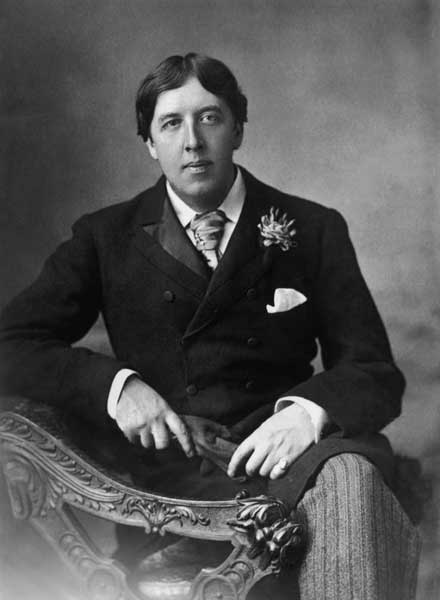Pleasure Bound: Victorian Sex Rebels and the New Eroticism, By Deborah Lutz

Your support helps us to tell the story
From reproductive rights to climate change to Big Tech, The Independent is on the ground when the story is developing. Whether it's investigating the financials of Elon Musk's pro-Trump PAC or producing our latest documentary, 'The A Word', which shines a light on the American women fighting for reproductive rights, we know how important it is to parse out the facts from the messaging.
At such a critical moment in US history, we need reporters on the ground. Your donation allows us to keep sending journalists to speak to both sides of the story.
The Independent is trusted by Americans across the entire political spectrum. And unlike many other quality news outlets, we choose not to lock Americans out of our reporting and analysis with paywalls. We believe quality journalism should be available to everyone, paid for by those who can afford it.
Your support makes all the difference.At the outset, the American academic Deborah Lutz describes the impetus of this book in terms of the following question: "If we could be young sexual innovators and deviants out for action in Victorian London, how might that feel?" A snap response might be that, in terms of English usage, we couldn't possibly feel "out for action", a much more recent coinage. Pleasure Bound moves on to give us snapshots of 19th-century specimens of debauched and sexually outré behaviour – which means, in practice, all the usual suspects. The Pre-Raphaelites, Algernon Swinburne, Henry Spencer Ashbee, Richard Burton, Oscar Wilde are present and incorrect.
A second puzzle pertains to the book's pursuit of the "new eroticism", since the breadth and (in many cases) intensity of Victorian England's sexual passions has been commonly accepted and widely indicated by countless historians for decades. There is, sadly, little in Pleasure Bound that is new, and nothing innovative.
Lutz has read, digested and extensively drawn on a sizeable body of other studies – though I was more surprised at her omissions. Lutz claims to cover late-period homoeroticism, but has not come across Matt Cook's London and the Culture of Homosexuality, 1885-1914. Slumming fascinates her, yet she seems unaware of Seth Koven's excellent study of the phenomenon. What is here is depressingly underpowered or misguided. How far does it help our understanding of Tennyson's In Memoriam to be told it is "as long as a novel"? Which novel – The Strange Case of Dr Jekyll and Mr Hyde, or Middlemarch? George Meredith's fascinating, complex poem Modern Love is dismissed as "tendentious". John Everett Millais's renowned portrait of Ophelia may be sensual, but her death is surely not depicted as "like an orgasm" – if indeed it is shown at all. Nor does Arthur Hughes's canvas show the dead poet Chatterton "waiting to be ravished". Can a corpse even possess such expectations? Suddenly the phantasmic phenomenon, sex, is everywhere, rather than nowhere.
Clichés abound, and so we have: "the Victorians teetered on the edge of modernity". There are generalisations which might have adorned a weak undergraduate essay: "A country well on the road to the secularism of modern capitalism, Victorian Britain found itself in the middle of constant religious upheavals and controversy, a kind of last gasp before a general fall by the end of the century, when to the majority of the population religion became irrelevant." "Prove it", I longed to scribble in the margins. Nietzsche announcing something does not make it so.
There's one straightforward howler. Lutz acknowledges that the pathological term "homosexual" was not commonly used until the end of the century, but she interprets an earlier comment of Swinburne's – that "great poets are bisexual" – as if it meant they are attracted to both sexes. He clearly meant they were androgynous, containing "male and female at once". Other moments are simply impenetrable. What does Lutz mean by describing Richard Burton as "usually the top" to his wife Isabel's "bottom"? Has she found evidence – diagrammatical or otherwise – of their coitus unavailable to other scholars?
Lutz frequently compares her protagonists to the present day, bringing in such unlikely fellow-travellers as CSI and Playboy magazine. Streetwise vocabulary is also deployed. Guy de Maupassant, we learn, "had a crush on Swinburne". Dante Gabriel Rossetti "shacked up" with his brother. Richard Burton's "Terminal Note" was partly "randy locker-room gossip". By the time the deathly nonce formulation "community" enters – as when EM Forster "saw Wilde as standing for an embattled [gay] community" – this reader was longing to check out of the cod-Victorian sexual free-for-all entirely.
It would be nice if all works of scholarship had something to contribute. I suspect in this case, however, that a reader's sole pleasure may exist in placing Pleasure Bound aside and investigating the many more thorough and persuasive studies of Victorian erotics.
Richard Canning is the author of 'Brief Lives: Oscar Wilde' (Hesperus)
Join our commenting forum
Join thought-provoking conversations, follow other Independent readers and see their replies
Comments